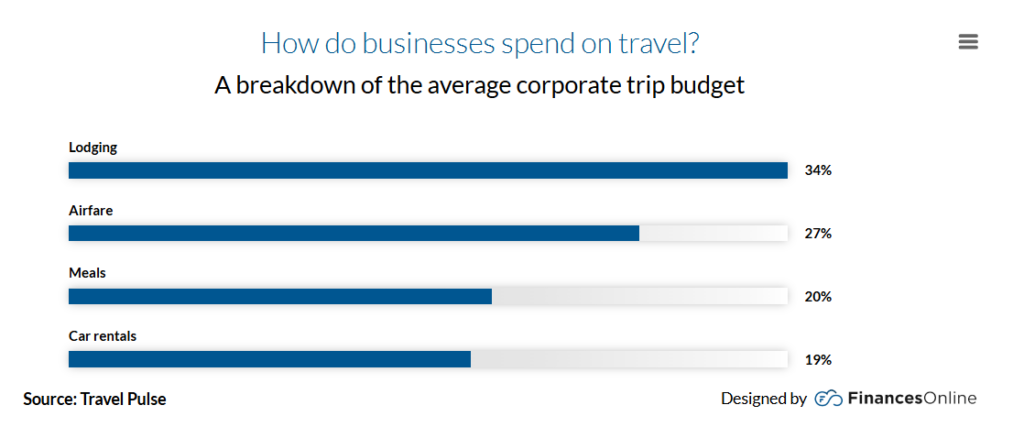
Virtual data rooms (VDRs) are secure online platforms to store and share sensitive documents during M&A, legal cases, fundraising, and other complex transactions. The software allows multiple parties to access confidential files, all while keeping things organized and confidential. Furthermore, the solution offers feature-rich collaboration spaces for managing workflows and communication.
However, data rooms have their pros and cons, just like any other technology. Therefore, businesses need to weigh them before deciding if this product fits their needs. In this post, we discuss what a virtual data room can do, highlight its key advantages and disadvantages, and share tips on how to select a virtual data room.
What is a virtual data room?
A virtual data room is a cloud-based solution for secure document management and file-sharing. It features complex encryption protocols, multi-factor authentication, and customizable access controls that ensure only authorized users interact with specific documents.
In addition, the platform handles large volumes of data while offering advanced functionalities like full-text search, batch uploads, and real-time user activity tracking.
The best virtual data room features include the following:
| Feature | How it works |
| End-to-end encryption | This security measure makes critical business data unreadable without the proper decryption key from the time it’s uploaded until an authorized user accesses it.Thus, if someone intercepts data in transit or tries to access it while stored, they cannot view and use it. |
| Granular permissions | Data room administrators control who can access and how they can interact with a document. For example, permissions can be set to “view-only” mode to prevent users from downloading or editing files. |
| Audit trails | Virtual data room solutions automatically log every action taken within the platform, such as when a user views, downloads, edits, or shares a document.These detailed records provide a transparent history of user activity, which is critical for compliance, security reviews, and legal disputes. |
| Automated watermarking | This function automatically adds a watermark to documents viewed or downloaded from a virtual data room. It can be the viewer’s name, IP address, or timestamp.This tool deters unauthorized document sharing by leaving a trace of the user responsible for leaks. |
| Scalable infrastructure | Deal rooms handle large data volumes and high user traffic without compromising performance. This scalability is crucial during periods of heavy usage, like due diligence, when multiple parties simultaneously access and review large amounts of documents. |
| Collaboration features | Q&A sections, private and group chats, real-time notifications, in-document commenting, and version control allow users to collaborate directly within a virtual data room without endless email chains or third-party tools. |
Virtual data rooms became essential tools in financial services, legal and real estate services, and life sciences, where keeping up with regulations and maintaining data security are critical. These sectors rely on the software to securely collaborate and control essential documents, whether they handle mergers, legal cases, or share intellectual property.
Virtual Data Room Market Size, Share, Trends | Growth [2032]
Now that you know what data rooms are and how they function, we invite you to explore the key advantages and disadvantages of VDRs.
Most popular data rooms
Overall rating:
4.9/5
Excellent

Overall rating:
4.8/5
Excellent

Overall rating:
4.7/5
Excellent
What are the key pros of virtual data rooms?
The main advantages of using the software include the following:
1. Security
Data rooms provide strong encryption and comply with GDPR, HIPAA, and SOC 2 regulations. Encryption protects confidential documents from cyber threats to confidently store and share confidential data.
Virtual data room compliance, in turn, ensures that you meet legal obligations regarding data protection, giving clients confidence that their information is secure and fostering trust in your business.
Who benefits most?
Healthcare organizations handle vast amounts of sensitive patient data that must be protected under regulations like HIPAA. Virtual data room providers enable secure storing and sharing of medical records, helping these organizations maintain regulatory compliance and protect patient trust.
👁️🗨️Healthcare data breach costs are significantly higher than in other industries. This year, the average breach in the sector costs $9.8 million, while the average expense in the financial industry is $6.08 million.
2. Accessibility
Virtual data room providers offer remote access to data rooms, making it easy for users to retrieve and work on documents with only an internet connection. This flexibility ensures that transaction parties can handle tasks outside traditional office hours or work settings.
In addition, some solutions are compatible with mobile devices. Thus, users can review, edit, or share documents using smartphones or tablets wherever they are.
Who benefits most?
Real estate agents and clients can retrieve property documents, contracts, and financial statements anywhere. Thus, they finalize deals more efficiently, especially during property viewings or negotiations outside standard office hours.
Advanced virtual data room services enable users to attach video presentations to other real estate documents. This way, buyers can access all the essential information in one location.
3. Collaboration
Data rooms promote real-time collaboration among all parties involved. Using multiple collaborative tools, team members can engage in discussions, share insights, and negotiate terms instantly. All this promotes quicker decision-making and helps maintain momentum throughout the transaction.
Who benefits most?
Law firms enable multiple parties (lawyers, clients, and experts) to work on cases simultaneously. Real-time discussions and document sharing promote faster decision-making and streamline case management, which is critical in meeting legal deadlines.
4. Efficiency
With all the time-saving features that virtual data room software offers, like bulk uploads, advanced search functionality, and version tracking, teams streamline document management. In particular, they reduce time spent on administrative tasks, meet critical deadlines, and get better outcomes in transactions and projects.
Who benefits most?
Financial institutions using data rooms reduce the time spent on document management, allowing them to focus on analysis and strategy development. In addition, organizations improve regulatory compliance, ensuring that all necessary documentation is readily available for audits or reviews.
5. Cost efficiency
Virtual deal rooms are a cost-effective alternative to traditional data rooms since they eliminate expenses associated with physical storage, travel, and in-person meetings. In particular, businesses save on renting space, printing physical documents, and transporting sensitive materials.
Who benefits most?
Startups often operate on tight budgets and greatly benefit from the cost-saving features of virtual deal rooms. By reducing expenses, startups can allocate resources more effectively and invest in growth and development rather than physical data rooms.

Source: 105 Critical Business Travel Statistics: 2024 Spending & Concerns Analysis – Financesonline.com
These benefits protect and streamline business operations in complex deals and everyday workflows across industries. However, the software comes with drawbacks.
What are the key cons of virtual data rooms?
The main disadvantages of using VDR software include the following:
1. Complexity
Some virtual data rooms feature a lot of tools, which overwhelm less tech-savvy users. For instance, a legal team unfamiliar with a complex interface may need help navigating the platform during a critical merger. As a result, parties may need more time to submit and review documents.
2. Dependence on internet access
Data rooms require reliable internet access. In a scenario where a company negotiates a time-sensitive acquisition and faces slow internet speeds or outages, confidential documents may become inaccessible, hindering the process.
3. Limited customization
Some virtual data room providers lack the flexibility to meet unique project requirements or industry-specific workflows. For example, a financial institution may need specific document tagging and indexing features for regulatory compliance. If the solution does not support these customizations, it complicates file organization and hinders compliance efforts.
4. Privacy concerns
Although data breaches are rare, concerns about data stored on third-party servers persist. For example, inadequate encryption during data transmission leaves sensitive information vulnerable to interception. Additionally, weak user authentication practices, such as simple passwords or lack of two-factor authentication, lead to unauthorized access.
While we can’t change the fact that all virtual data room solutions require a stable internet connection, we can mitigate other drawbacks by selecting a trusted provider.
Comparing the pros and cons of the best VDR providers
To help find the right solution, we have created a table highlighting the pros and cons of the top electronic data room providers in 2024.
| Virtual data room provider | Pros | Cons |
| 1. Ideals | Multilingual data room interface Eight levels of granular access permissions Built-in document redaction PDF auto conversion supporting 25+ file formats Secure spreadsheet viewer supporting Excel formulas Auto-notifications for new activity Detailed audit trail In-app live chat support 24/7/365 Better functionality for less money compared to other online data rooms | Limited interface branding options |
| 2. Intralinks | Well-implemented reports for document tracking Fast document upload Flexible Q&A tools AI-based document redaction Reliable data security features 24/7/365 customer support | Inefficient folder management due to complex permissions Occasional automatic index numbering issues Tedious user experience Performance issues and bugs |
| 3. Datasite | Easy data search with optical character recognition Drag-and-drop document uploading Secure online repository Reporting in PDF, PNG, and CSV Polite and timely customer service | Unpredictable page-based pricing structure Counterintuitive permissions management No desktop sync |
| 4. Onehub | Flexible index structure Intuitive multi-project management on desktop devices FTP getaway support High browser compatibility User-friendly interface on desktop devices Responsive technical support | Limited functionality No document and file tagging Counterintuitive interface in the mobile app |
| 5. Donnelley Venue | AI-powered document redaction User-friendly virtual data room space Hardware security modules for custom key management Q&A section with approval workflows Customizable NDAs and other contracts Multilingual customer support | No document password protection No possibility of uploading an entire index No multi-format file support Cumbersome manual user invitations |
Based on this virtual data room comparison, here is what we can take away about the providers:
1. Ideals virtual data room software offers a robust set of features at a competitive price, making it a strong option for complex M&A transactions. However, users may need to upgrade for additional storage beyond the basic plan.
Ideals software screenshot
2. Intralinks provides fast document uploads and reliable security, though its folder management can be overly complex, and occasional performance issues may affect the user experience.
Intralinks software screenshot
3. Datasite virtual data room stands out for its efficient search and reporting capabilities, but its unpredictable pricing and challenging permissions management could be drawbacks for some users.
Datasite software screenshot
4. Onehub virtual data room provider is good for simpler projects, offering a user-friendly desktop interface, but it lacks advanced features, particularly in its mobile app.
Onehub software screenshot
5. Donnelley Venue excels with AI-powered redaction and customizable contracts, though its lack of multi-format support and manual processes may limit efficiency in more complex workflows.
Donnelley Venue software screenshot
We recommend visiting each provider’s profile or website to learn more about data room services and checking user reviews on reputable platforms.
When is a virtual data room right for you?
A data room is a great solution if security, collaboration, and document management are your top priorities. Industries like legal, M&A, real estate, and finance benefit the most from the software because they often handle large volumes of sensitive data that need protection, secure sharing, and easy access for multiple stakeholders. So, a virtual data room is the right fit for your company if you manage complex deals, due diligence, or need strict compliance measures.
However, the platform may not be necessary for small projects or businesses with limited document security needs. If your team only handles a few files or doesn’t require high-level collaboration features, simpler and more cost-effective tools might be better for your needs.
📌Do you need a virtual data room? Take our quick questionnaire
Answer the following questions and determine whether virtual data room software is necessary for your organization:
- Do you regularly handle large volumes of sensitive data (e.g., financial records, legal documents)?
- Is secure file sharing with multiple external stakeholders (clients, investors, legal teams) a priority?
- Do you frequently engage in complex transactions (M&A, fundraising, real estate deals) that require strict confidentiality?
- Do you require advanced collaboration tools (real-time updates, Q&A sections, document versioning) for internal or external teams?
- Are regulatory compliance (GDPR, HIPAA, SOC 2) and audit trails necessary for your business operations?
- Do your projects involve multiple stages of due diligence or legal reviews that require controlled access to confidential documents?
- Is your current document management solution lacking security or user access controls?
- Would a centralized, cloud-based platform for storing, organizing, and sharing documents improve your workflow efficiency?
- Is scalability (handling multiple deals or projects simultaneously) a key concern for your business?
- Do you often work with remote teams or international stakeholders who need easy access to your sensitive data?
Results ⬇
If you answered Yes to six or more questions, a virtual data room is likely the right solution for your business.
If you answered Yes to fewer than six questions, consider whether a simpler file-sharing tool might meet your needs.
Conclusion
Virtual data rooms offer significant advantages, including robust security, improved collaboration, and streamlined document management. However, users should also consider some drawbacks, such as complexity, dependence on internet access, and limited customization.
So, weigh these pros and cons based on your organization’s needs, explore various options, compare virtual data rooms, request demos, and consult your team to make the best decision for your business.

